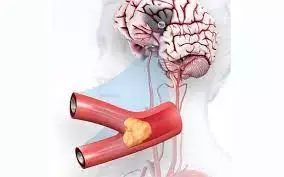- Home
- Medical news & Guidelines
- Anesthesiology
- Cardiology and CTVS
- Critical Care
- Dentistry
- Dermatology
- Diabetes and Endocrinology
- ENT
- Gastroenterology
- Medicine
- Nephrology
- Neurology
- Obstretics-Gynaecology
- Oncology
- Ophthalmology
- Orthopaedics
- Pediatrics-Neonatology
- Psychiatry
- Pulmonology
- Radiology
- Surgery
- Urology
- Laboratory Medicine
- Diet
- Nursing
- Paramedical
- Physiotherapy
- Health news
- Fact Check
- Bone Health Fact Check
- Brain Health Fact Check
- Cancer Related Fact Check
- Child Care Fact Check
- Dental and oral health fact check
- Diabetes and metabolic health fact check
- Diet and Nutrition Fact Check
- Eye and ENT Care Fact Check
- Fitness fact check
- Gut health fact check
- Heart health fact check
- Kidney health fact check
- Medical education fact check
- Men's health fact check
- Respiratory fact check
- Skin and hair care fact check
- Vaccine and Immunization fact check
- Women's health fact check
- AYUSH
- State News
- Andaman and Nicobar Islands
- Andhra Pradesh
- Arunachal Pradesh
- Assam
- Bihar
- Chandigarh
- Chattisgarh
- Dadra and Nagar Haveli
- Daman and Diu
- Delhi
- Goa
- Gujarat
- Haryana
- Himachal Pradesh
- Jammu & Kashmir
- Jharkhand
- Karnataka
- Kerala
- Ladakh
- Lakshadweep
- Madhya Pradesh
- Maharashtra
- Manipur
- Meghalaya
- Mizoram
- Nagaland
- Odisha
- Puducherry
- Punjab
- Rajasthan
- Sikkim
- Tamil Nadu
- Telangana
- Tripura
- Uttar Pradesh
- Uttrakhand
- West Bengal
- Medical Education
- Industry
Baseline cortisol may predict severity prognosis and mortality after Acute ischemic stroke

Baseline cortisol may be marker of severity, prognosis and mortality after Acute ischemic stroke suggests a new study published in the Cureus
Stroke is a major global burden with significant morbidity, mortality, and long-term disability. Acute ischemic stroke (AIS) is a stressful condition causing stimulation of the hypothalamic-pituitary-adrenal (HPA) axis resulting in numerous endocrinal alterations in the body. We evaluated the serum cortisol as a prognostic marker in AIS.
This was a prospective observational study comprising 100 cases suffering from Acute ischemic stroke, and serum cortisol at the baseline was measured. Severity was evaluated using the National Institutes of Health Stroke Scale (NIHSS) during admission, and functional outcome was assessed at 1, 4, and 24 weeks using a modified Rankins score (mRS). Statistical analysis was performed to find the relationship between serum cortisol and the severity of stroke, outcome, and mortality at 1, 4, and 24 weeks of stroke.
RESULTS
In our study, we found positive correlations between random blood sugar and serum cortisol (r = 0.273, p = 0.006); stroke severity (NIHSS) and serum cortisol (r = 0.785, p < 0.001); stroke outcome (mRS) at 1, 4, and 24 weeks; and serum cortisol (p < 0.001 and r = 0.676, 0.654, 0.650 for all three intervals, respectively). We also found higher serum cortisol among patients who died at 1, 4, and 24 weeks compared to those who survived with a p-value being <0.001 for all three intervals.
A stress response causing an increase in serum cortisol occurs in AIS. This response is detrimental to the patient. The serum cortisol at baseline can be considered a marker of severity, short- and long-term prognosis, and mortality after AIS.
Reference:
Saini, Gurjeet, et al. "Single Serum Cortisol Value as a Prognostic Marker in Acute Ischemic Stroke." Cureus, vol. 15, no. 6, 2023, pp. e40887.
Keywords:
Baseline, cortisol marker, severity, prognosis, mortality, Acute, ischemic, stroke, Cureus, Saini, Gurjeet
Dr. Shravani Dali has completed her BDS from Pravara institute of medical sciences, loni. Following which she extensively worked in the healthcare sector for 2+ years. She has been actively involved in writing blogs in field of health and wellness. Currently she is pursuing her Masters of public health-health administration from Tata institute of social sciences. She can be contacted at editorial@medicaldialogues.in.
Dr Kamal Kant Kohli-MBBS, DTCD- a chest specialist with more than 30 years of practice and a flair for writing clinical articles, Dr Kamal Kant Kohli joined Medical Dialogues as a Chief Editor of Medical News. Besides writing articles, as an editor, he proofreads and verifies all the medical content published on Medical Dialogues including those coming from journals, studies,medical conferences,guidelines etc. Email: drkohli@medicaldialogues.in. Contact no. 011-43720751


